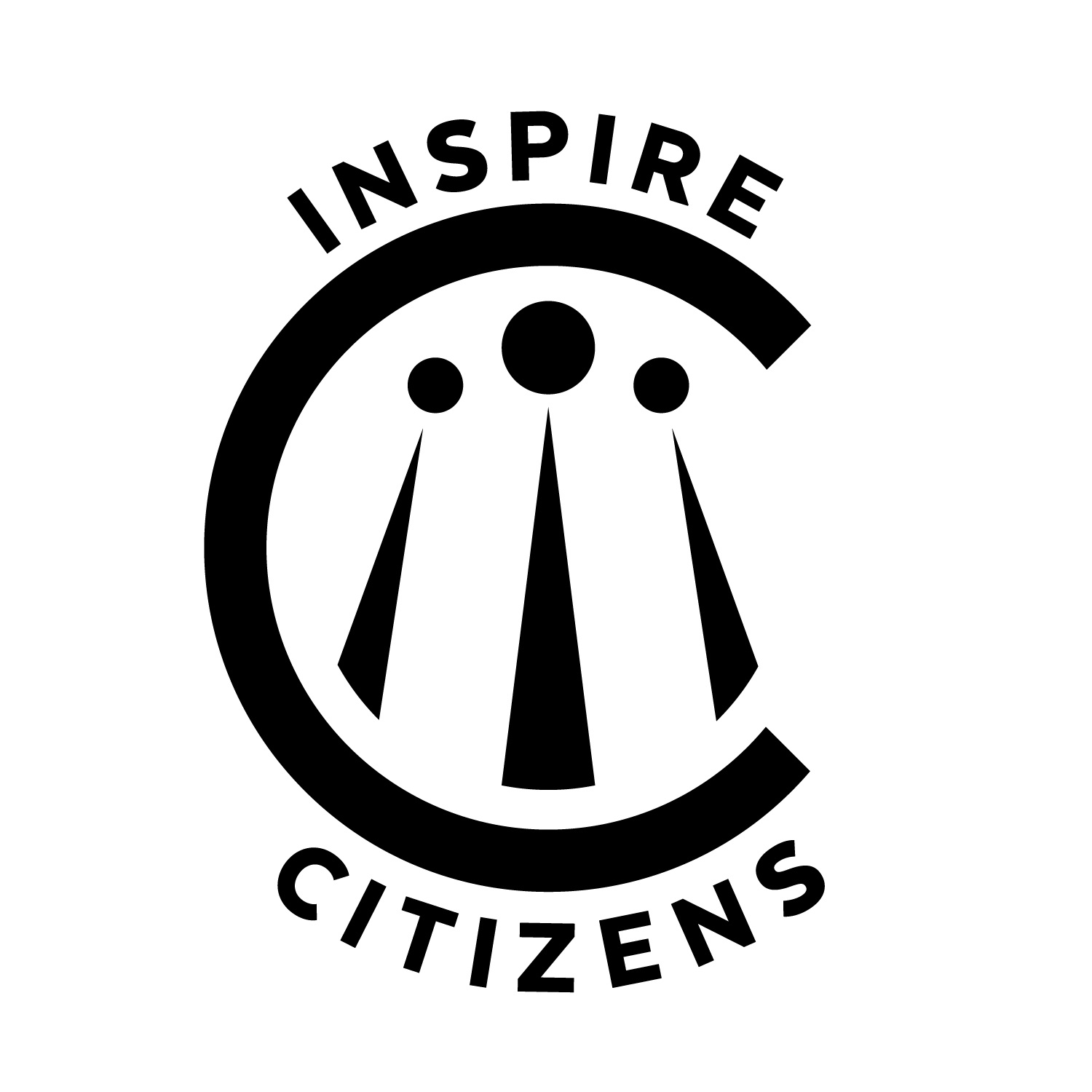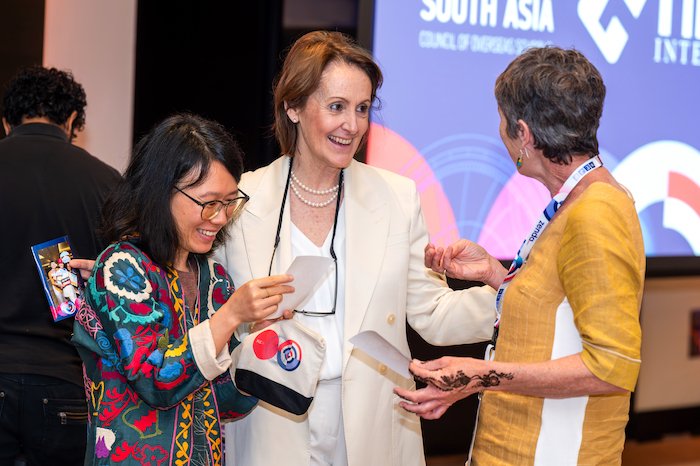Fostering Regenerative Thinking and Transformative Action: Exploring the Collaboration Between NESA and Inspire Citizens
“Alone we can do so little; together we can do so much.” — Helen Keller
NESA Executive Director Maddy Hewitt develops dynamic collaborations to keep her organization on track to becoming a hub for regenerative schools. (Source: NESA)
With her signature contagious energy, Madeleine (Maddy) Hewitt capably juggles a Zoom call on transformative trends in international education while packing for her organization’s signature conference. As the Executive Director of the Near East South Asia Council of Overseas Schools (NESA), Maddy leads the charge in ensuring the organization’s reputation for supporting international schools in their mission to innovate, improve, and cultivate resilient learning ecosystems. Central to this mission is NESA’s partnership with Inspire Citizens, whose expertise in designing classroom-centered, transformative learning experiences perfectly aligns with NESA’s goals. Together, they are redefining educational paradigms by seamlessly merging regenerative thinking with practical implementation, paving the way for systemic change.
A Shared Vision: Empowering Classrooms to Empower the World
Reflecting on the origins of the partnership, Maddy recalls her initial impressions of Inspire Citizens: “I began to look at their materials and look at the wonderful graphics and organizing tools. It was very real and relevant and transformational but was also very classroom-based and standards-based.” From the start, IC’s mission of “empowering leaders with implementation systems, frameworks, progress monitoring tools and accountability” resonated deeply with NESA’s priorities.
Aligned with NESA’s perspective on regenerative thinking and transformative action, the Inspire Citizens Profile of a Holistic Global Citizen offers a broad spectrum of reflection and action ideals. (Source: Inspire Citizens)
Central to NESA’s strategic pillars is fostering coherence across instructional practices, promoting inclusivity, and embedding social-emotional learning and equity into every classroom experience. As Maddy notes, “IC’s designs are highly agentic for learners, offering lots of agency and engagement. They make it connected through emotional engagement and intellectual rigor and ethical reflection.” Leaning in to IC’s strengths has empowered NESA schools to implement impactful, sustainable approaches to learning, ensuring education is not just about knowledge but also about fostering agency, ethics, and action in students.
Transforming Theory into Tangible Impact: Key Projects and Initiatives
Over the years, NESA and IC have collaborated on initiatives that bring their shared ideals to life. One early project was the co-creation of the Inspire Citizens-NESA Card Deck, which provided innovative prompts for learning adventures, helping educators and students explore what they need to “learn and unlearn” to thrive in a rapidly changing world. This tangible tool, branded with both organizations’ logos, remains a popular resource, frequently requested by educators across the region.
A standout moment in the partnership came during NESA’s first leadership conference post-pandemic in Abu Dhabi. IC Co-Founder Steve Sostak not only led workshops but also mentored the youth keynote speaker, Saeed El-Kadi, a graduate from the American Community School in Beirut. As Maddy recounts, “Steve worked with Saeed on everything from his vision for the keynote to the artistry of the slide deck and the structure of his speech.” The result was a moving keynote that inspired educators to reimagine schooling for a better future.
Regenerative Schools: A Collective Vision for the Future
The Doughnut Economics concept and framework was developed by Kate Raworth, an English economist. The Doughnut Economics diagram is a visual representation of the economic model, relevant to all organizations, as it seeks to provide a balance between human needs and planetary boundaries. The goal is to create a sustainable and just economy that meets the needs of all people within the ecological limits of the planet. (source: Vision for Focus and Impact toward Regenerative International Schools)
One of the most impactful collaborations between NESA and IC lies in the Regenerative Schools Initiative, a cornerstone of NESA’s work toward sustainability and human flourishing. Grounded in frameworks like Doughnut Economics and the OECD’s Compass Model, the initiative challenges schools to rethink their practices to operate within planetary boundaries while promoting social equity. “Inspire Citizens has been a critical thought partner in this work,” Maddy shares.
IC’s influence extends to NESA’s forthcoming film on regenerative education, set to debut this spring. Featuring stories from schools across the region, the film will highlight how educators are operationalizing regenerative principles in curriculum, school leadership, and community engagement. Maddy credits IC’s Ivy Yan with helping NESA weave experiential, mindfulness-based approaches into this narrative: “Ivy has helped us advance that program. She has a way of seeing the world, treating it tenderly, and helping us understand we're at an existential crisis,” explains Maddy. “Ivy inhabits the space between being and doing quite well.”
Developing Practical Approaches to Eco-Anxiety
The collaboration between NESA and Inspire Citizens is as much about hope as it is about action. Drawing from Elin Kelsey’s concept of “evidence-based hope,” both organizations emphasize the importance of showcasing solutions that are already working. Maddy explains, “Inspire Citizens gives us beautiful models for eco literacy, deep ecology and ecological learning – and helps to bring it into the classroom.”
This hopeful, solutions-oriented approach is particularly critical in addressing the rising challenge of eco-anxiety among students and educators alike. By integrating stories of resilience and regeneration into the curriculum, NESA and IC are equipping schools to not only teach about the climate crisis but also inspire meaningful, hopeful engagement with it.
Looking Ahead: Sustained Systemic Development
As NESA continues to develop its role as a hub for regenerative learning, the value of partnerships like the ongoing collaboration with Inspire Citizens remains central. From professional development workshops to the integration of global competencies into lesson plans, the shared work is a testament to what is possible when vision becomes a reality.
Reflecting on the partnership, Maddy encapsulates its essence: “Inspire Citizens, to me, has chosen to integrate well, to design well, to stay curious and to research itself as it goes. So all of those pieces are exactly what we need as we build better learning models. ”
As schools across the NESA region evolve into centers of innovation and impact, the collaboration with Inspire Citizens ensures that this transformation remains grounded, relevant, and hopeful. Together, they are proving that education is not just a tool for preparing students for the future—it is a catalyst for creating it.



